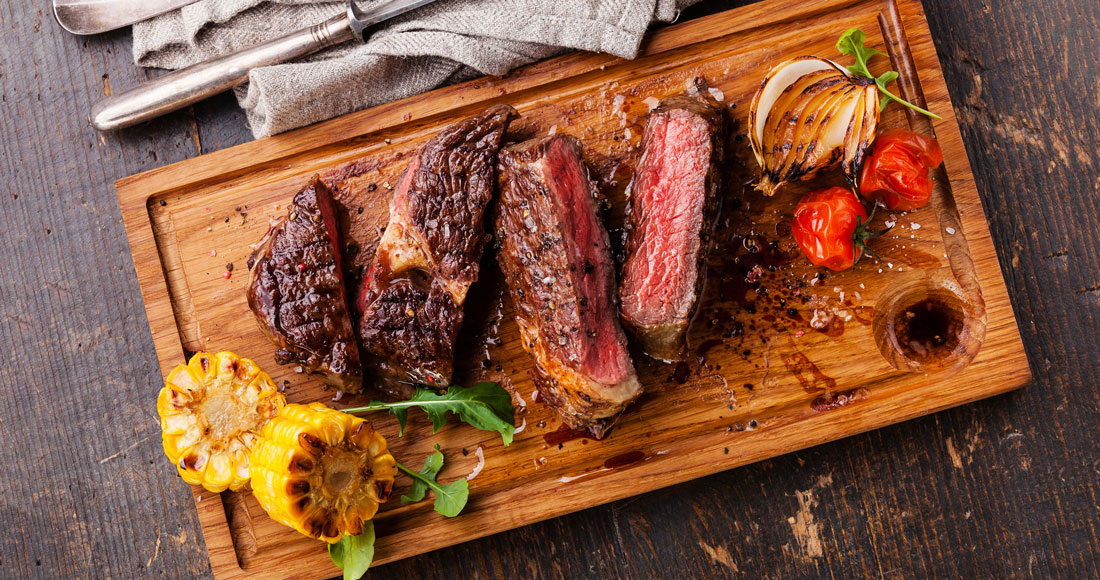No one wants to die but at some point we’re all toast. This sounds morbid but throughout history has led to some of the most hedonistic nutritional breakthroughs mankind has seen (from Ben & Jerry’s to Anthony Bourdain).
However, in recent years there has been a push back against this devil-may-care attitude, as low carb zealots attempt to take your diet back to simpler (paleolithic) times.
Trade your eggs on toast for eggs on eggs, your pasta for zucchini and your cereal for steak, they say. And never mention that cavemen didn’t eat Matcha.
While going strictly Paleo is likely better than badly following a mainstream science diet, past studies have raised numerous concerns about the quantity of saturated fat low carb dieters tend to consume.
Adding to this list of concerns is a new Australian study, published in the European Journal of Nutrition, which found people who follow the Paleolithic diet have high levels of a blood biomarker tied to heart disease, and also suggested they have poorer gut health.
As reported by Medical News Today, this finding “raises some red flags about this type of diet, which, the researchers suggest, is not balanced enough to ensure good health.”
While Paleo dieters’ culling of refined carbohydrates and processed sugars (and their high intake of meats, fruits, vegetables, nuts and seeds) is to be commended, their culling of dairy, legumes, and whole-grains is on scientifically shaky ground.
This has become a topic of intense debate, with some studies suggesting the Paleo diet can protect against heart attacks and diabetes and others suggesting the exact opposite.
To shed some light on the topic the aforementioned team of Australian investigators conducted an investigation into the long term effects of the Paleo diet, analysing 44 volunteers who followed Paleo diets, as well as 47 volunteers who followed typical diets that met national dietary recommendations.
Led by scientist Angela Genoni, the experiment took place over a year, during which the researchers “collected biological samples from all the participants, assessed their diets, and compared results between the Paleo cohort and the control group,” (Medical News Today).
Moreover, in order to be more precise, participants who followed a Paleo diet were split into two further groups, one of which included 22 individuals who ate less than one serving per day of grains and dairy, and another which included 22 individuals who ate more than one serving of grains and dairy per day.
As reported by Medical News Today, “The researchers found that, across Paleo groups, individuals presented heightened blood levels of a compound that specialists associate with heart disease: trimethylamine N-oxide.”
“Trimethylamine N-oxide first forms in the gut, and its levels depend on a person’s diet and the bacteria that populate their gut, among other factors.”
Lead scientist Angela Genoni also said: “We… found that populations of beneficial bacterial species were lower in the Paleolithic groups, associated with the reduced carbohydrate intake, which may have consequences for other chronic diseases over the long term.”
Genoni and her team believe Paleo dieters have such heightened levels of trimethylamine N-oxide because they do not consume whole grains — a great source of dietary fibre, which helps reduce one’s risk of cardiovascular problems.
“We found the lack of whole grains associated with [trimethylamine N-oxide] levels… may provide a link [with] the reduced risks of cardiovascular disease we see in populations with high intakes of whole grains,” says Geroni.
“The Paleo diet excludes all grains and we know that whole grains are a fantastic source of resistant starch and many other fermentable fibers that are vital to the health of your gut microbiome.”
Additionally, the researchers point out that participants in the Paleo diet groups also had higher concentrations of the gut bacteria “hungatella” that generate the compound.
“Because [trimethylamine N-oxide] is produced in the gut, a lack of whole grains might change the populations of bacteria enough to enable higher production of this compound,” Genoni explains in the European Journal of Nutrition.
“Additionally, the Paleo diet includes greater servings per day of red meat, which provides the precursor compounds to produce [trimethylamine N-oxide]… and Paleo followers consumed twice the recommended level of saturated fats, which is cause for concern.”
The conclusion? Excluding whole grains from your diet can seriously impact your gut health, with implications for your heart, too. The scientists also call for more studies to be conducted into the role of vegetables and saturated fats in regulating key biological mechanisms in the gut.
